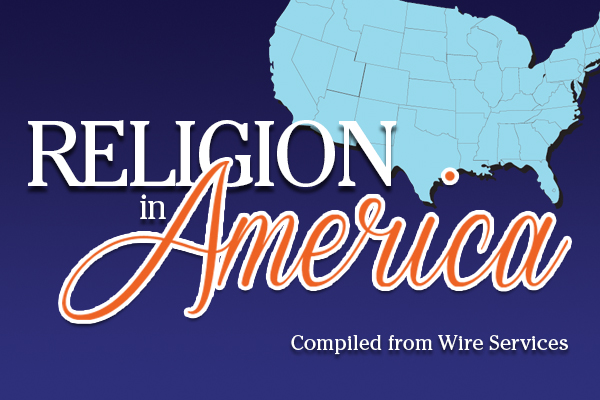A new survey finds the vast majority of U.S. evangelicals view themselves as part of mainstream American society while at the same time believing they have to fight to be heard by mainstream Americans.
The results of the survey, conducted for the PBS television program “Religion & Ethics NewsWeekly” and U.S. News & World Report, were released at an April 13 news conference.
The wide-ranging survey by Greenberg Quinlan Rosner Research of Washington, D.C., looked at political, religious and racial diversity among evangelicals as well as their beliefs, values and behavior.
Three-quarters of all evangelical Christians believe they fit into mainstream American society and exactly the same percentage — 75 percent — say they have to fight to get heard by mainstream Americans.
In, not of the world
“These are folks that perceive themselves to be very much in the modern world — and they are, in fact, very much in the modern world — but they do not see themselves as being of the world,” said John Green, a political science professor at the University of Akron who acted as an adviser to the survey.
The national poll of 1,610 respondents was conducted between March 16 and April 4 and had an overall margin of error of plus or minus 2.5 percentage points.
Researchers found distinctions among evangelicals about leaders such as Pat Robertson and Jerry Falwell who are often viewed as their representatives. Just 44 percent of all evangelicals offered a favorable view of Falwell while 54 percent viewed Robertson positively.
“They’re discerning about their own leadership,” said Anna Greenberg, vice president of the research firm that conducted the survey.
The world’s most prominent Catholic ranked higher than some evangelical brethren. Pope John Paul II earned a favorable rating from 59 percent of evangelicals.
There also are distinctions on key theological viewpoints. While 48 percent of all evangelicals surveyed think only born-again Christians will go to heaven, 45 percent said they do not believe that. Half of white evangelicals believe that to be the case and fewer black evangelicals — 42 percent — think born-again Christians are the only ones who will enter heaven.
“I think it does tend to undermine the notion that evangelicals are dogmatic and intolerant about faith matters,” Green told Religion News Service. “The fact that they see salvation as something that’s available to people other than themselves, … it does go against the stereotype.”
Researchers found that while evangelicals were generally opposed to gay “marriage” — 83 percent — that view did not equate with a universal call for a constitutional amendment banning such unions.
Forty-one percent of evangelicals said an amendment is needed while 52 percent said it was sufficient to prohibit gay marriage by law without changing the Constitution.
Moreover, evangelicals were almost evenly divided over whether gay marriage would provide a litmus test for their vote in an election. Forty-six percent said they would not vote for a candidate who disagrees with them about gay marriage but agrees with them on other issues, while 42 percent said they would vote for such a candidate.
Concerns about country
Overall, 63 percent of evangelicals said they would support President Bush in the presidential election while 31 percent favored Democratic candidate John Kerry. Sixty-nine percent of white evangelicals consider themselves to be Republicans or lean Republican while 84 percent of African-American evangelicals call themselves Democrats or lean Democrat.
White evangelicals ranked moral values as their top domestic concern but shared general concerns about the economy with other Americans. That same group of evangelicals was divided about the direction the country is headed, with 44 percent saying it’s going in the right direction and 45 percent saying it’s on the wrong track.
When asked if the country’s moral values are headed in the right direction or are “pretty seriously off on the wrong track,” 76 percent of white evangelicals and 94 percent of African-American evangelicals said they were on the wrong track.
Twenty percent of African-American evangelicals said helping to improve the standard of living in less developed countries is extremely important, compared to 8 percent of white evangelicals. (Religion News Service)




Share with others: